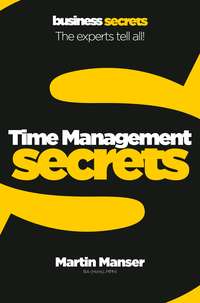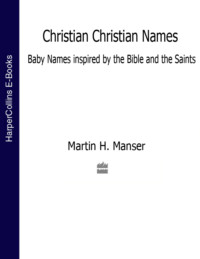
Полная версия
Best Loved Hymns and Readings
All things bright and beautiful,All creatures great and small,All things wise and wonderful,The Lord God made them all.
Each little flower that opens,
Each little bird that sings,
He made their glowing colours,
He made their tiny wings.
The purple-headed mountain,
The river running by,
The sunset, and the morning
That brightens up the sky:
The cold wind in the winter,
The pleasant summer sun,
The ripe fruits in the garden,
He made them every one.
The tall trees in the greenwood,
The meadows where we play,
The rushes by the water
We gather every day.
He gave us eyes to see them,
And lips that we might tell
How great is God Almighty,
Who has made all things well.
Cecil Frances Alexander (1818-95)
All we like sheep
Isaiah 53, perhaps more than anywhere else in the Old Testament, contains clear prophecy of the sufferings and coming to glory of Jesus Christ. This passage is seen as a description of the ‘Suffering Servant’, a role that, together with that of the conquering lordship of the expected Messiah, was uniquely fulfilled in Christ.
Handel used this passage in his oratorio, Messiah.
Who hath believed our report? and to whom is the arm of the LORD revealed?
For he shall grow up before him as a tender plant, and as a root out of a dry ground: he hath no form nor comeliness; and when we shall see him, there is no beauty that we should desire him.
He is despised and rejected of men; a man of sorrows, and acquainted with grief: and we hid as it were our faces from him; he was despised, and we esteemed him not.
Surely he hath borne our griefs, and carried our sorrows: yet we did esteem him stricken, smitten of God, and afflicted.
But he was wounded for our transgressions, he was bruised for our iniquities: the chastisement of our peace was upon him; and with his stripes we are healed.
All we like sheep have gone astray; we have turned every one to his own way; and the LORD hath laid on him the iniquity of us all.
He was oppressed, and he was afflicted, yet he opened not his mouth: he is brought as a lamb to the slaughter, and as a sheep before her shearers is dumb, so he openeth not his mouth.
He was taken from prison and from judgment: and who shall declare his generation? for he was cut off out of the land of the living: for the transgression of my people was he stricken.
And he made his grave with the wicked, and with the rich in his death; because he had done no violence, neither was any deceit in his mouth.
Yet it pleased the LORD to bruise him; he hath put him to grief: when thou shalt make his soul an offering for sin, he shall see his seed, he shall prolong his days, and the pleasure of the LORD shall prosper in his hand.
He shall see of the travail of his soul, and shall be satisfied: by his knowledge shall my righteous servant justify many; for he shall bear their iniquities.
Therefore will I divide him a portion with the great, and he shall divide the spoil with the strong; because he hath poured out his soul unto death: and he was numbered with the transgressors; and he bare the sin of many, and made intercession for the transgressors.
(Authorized [King James] Version)
Amazing grace
The first six verses of this hymn were the work of hymn writer John Newton; the last was a later addition by John P. Rees (1825-1900). Newton turned to the church after a dissolute life in which he had even operated as a slave-trader. As curate in the Northamptonshire village of Olney he dedicated himself to God’s work, refusing to retire due to ill-health even in his eighties, arguing ‘My memory is nearly gone, but I remember two things: that I am a great sinner, and that Christ is a great Saviour!’
This hymn is unique in having occupied the number one spot in the pop charts for a total of nine weeks in a version recorded by the pipes and drums of the Royal Scots Dragoon Guards in the early 1970s.
Amazing grace! how sweet the sound
That saved a wretch like me;
I once was lost, but now am found,
Was blind, but now I see.
‘Twas grace that taught my heart to fear,
And grace my fears relieved;
How precious did that grace appear,
The hour I first believed!
Through many dangers, toils and snares
I have already come:
‘Tis grace that brought me safe thus far,
And grace will lead me home.
The Lord has promised good to me,
His word my hope secures;
He will my shield and portion be
As long as life endures.
Yes, when this heart and flesh shall fail,
And mortal life shall cease,
I shall possess within the veil
A life of joy and peace.
The earth shall soon dissolve like snow,
The sun forbear to shine,
But God, who called me here below,
Will be for ever mine.
When we’ve been there a thousand years,
Bright shining as the sun,
We’ve no less days to sing God’s praise
Than when we first begun.
John Newton (1725-1807)
And can it be?
This hymn was among the very first of the 8000 or so hymns written by the great hymn writer Charles Wesley over the course of 50 years. It was probably conceived shortly after 21 May 1738, the day upon which Charles underwent a revelatory conversion to evangelicalism under the influence of the Moravian missionary Peter Boehler. It is also said to have been sung by Charles’ brother John on the evening of his own conversion some time later.
And can it be that I should gain
An interest in the Saviour’s blood?
Died He for me, who caused His pain?
For me, who Him to death pursued?
Amazing love! how can it be
That Thou, my Lord, shouldst die for me?
He left His Father’s throne above,
So free, so infinite His grace!
Emptied Himself of all but love,
And bled for Adam’s helpless race!
‘Tis mercy all, immense and free,
For, O my God, it found out me.
‘Tis mystery all! th’ Immortal dies!
Who can explore his strange design?
In vain the firstborn seraph tries
To sound the depths of love divine.
‘Tis mercy all! let earth adore;
Let angel minds inquire no more.
Long my imprisoned spirit lay
Fast bound in sin and nature’s night.
Thine eye diffused a quickening ray;
I woke – the dungeon flamed with light!
My chains fell off, my heart was free,
I rose, went forth, and followed Thee.
No condemnation now I dread;
Jesus, and all in Him is mine;
Alive in Him, my living Head,
And clothed in righteousness divine,
Bold I approach th’ eternal throne,
And claim the crown, through Christ my own.
Charles Wesley (1707-88)
Away in a manger
Extraordinarily, no one knows who wrote this hugely popular children’s Christmas carol, although the third verse is known to have been the work of John Thomas McFarland (1851-1913). Because it was first published in a Lutheran hymnal early in the nineteenth century it was assumed for many years that it was composed by Martin Luther himself, but this appears to be an erroneous attribution.
Away in a manger, no crib for a bed,
The little Lord Jesus laid down His sweet head;
The stars in the bright sky looked down where He lay –
The little Lord Jesus, asleep on the hay.
The cattle are lowing, the baby awakes,
But little Lord Jesus, no crying He makes.
I love Thee, Lord Jesus! Look down from the sky,
And stay by my side until morning is nigh.
Be near me, Lord Jesus: I ask Thee to stay
Close by me for ever, and love me, I pray;
Bless all the dear children in Thy tender care,
And fit us for heaven to live with Thee there.
Anonymous
Be baptized
This passage from Acts 2:38-42 contains the best-known call to discipleship from the early church. Peter, who had been fearful and timid, denying Christ three times, has been empowered by the Holy Spirit and is now proclaiming the good news boldly and fearlessly. The results are dramatic as many come to believe in Jesus Christ.
Peter said to them, ‘Repent, and be baptized every one of you in the name of Jesus Christ so that your sins may be forgiven; and you will receive the gift of the Holy Spirit. For the promise is for you, for your children, and for all who are far away, everyone whom the LORD our God calls to him.’ And he testified with many other arguments and exhorted them, saying, ‘Save yourselves from this corrupt generation.’ So those who welcomed his message were baptized, and that day about three thousand persons were added. They devoted themselves to the apostles’ teaching and fellowship, to the breaking of bread and the prayers.
Be still, my soul
Katharina Amalia von Schlegel was the canoness of a women’s seminary in post-Reformation Germany and a leading figure in the Pietist movement. This hymn became a great favourite among English speakers after being translated by Jane Laurie Borthwick (1813-97), a dedicated member of the Free Church of Scotland. It owes much of its success to its setting to Sibelius’ music Finlandia.
Be still, my soul: the Lord is on thy side;
Bear patiently the cross of grief or pain;
Leave to thy God to order and provide;
In every change He faithful will remain.
Be still, my soul: thy best, thy heavenly friend
Through thorny ways leads to a joyful end.
Be still, my soul: thy God doth undertake
To guide the future as He has the past.
Thy hope, thy confidence let nothing shake;
All now mysterious shall be bright at last.
Be still, my soul: the waves and winds still know
His voice who ruled them while He dwelt below.
Be still, my soul: when dearest friends depart,
And all is darkened in the vale of tears,
Then shalt thou better know His love, His heart,
Who comes to soothe thy sorrow and thy fears.
Be still, my soul: thy Jesus can repay,
From His own fullness, all He takes away.
Be still, my soul: the hour is hastening on
When we shall be forever with the Lord,
When disappointment, grief, and fear are gone,
Sorrow forgot, love’s purest joys restored.
Be still, my soul: when change and tears are past,
All safe and blessed we shall meet at last.
Katharina Amalia von Schlegel (1697-1768)
Конец ознакомительного фрагмента.
Текст предоставлен ООО «ЛитРес».
Прочитайте эту книгу целиком, купив полную легальную версию на ЛитРес.
Безопасно оплатить книгу можно банковской картой Visa, MasterCard, Maestro, со счета мобильного телефона, с платежного терминала, в салоне МТС или Связной, через PayPal, WebMoney, Яндекс.Деньги, QIWI Кошелек, бонусными картами или другим удобным Вам способом.







